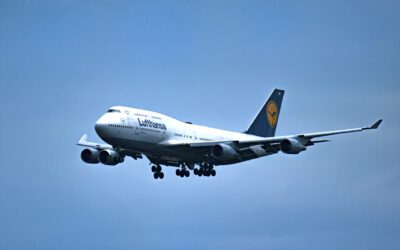United’s early morning departure from Orlando to San Francisco is one of the more gruesome flights in the U.S.
Orlando International Airport is big, the security lines are long, and there are many infrequent fliers, especially families.
The combination means that even experienced fliers may need to arrive before dawn. On the other hand, the other nonstop back to San Francisco arrives late, and connections add at least two to three hours to the trip, so I’ve taken the early flight more than once.
Last weekend, I got a message from United late in the afternoon the day before the flight that it would be delayed, from 6:45 a.m. to 7:24 a.m., due to “operational difficulties,” which was not bad news.
Every minute of sleep counts. Except for the little message at the bottom.
“Please be at the gate for boarding prior to the original scheduled departure time of 6:45 a.m., as the departure time could be revised again.”
Uh, so if the plane is late, why do we have to be on time? And spend the extra time sitting around instead of sleeping?
Alas, this is a pretty standard airline procedure. Because things do happen. And departure times can be revised again. I’ve had more than one client hear about a delay, head off for a meal or a drink, and come back to find their flight closed or gone.
In this case, since it was “operational difficulties,” and they knew the night before, I had a pretty good guess, from past experience, that this delay was to give the pilots the legal amount of rest time. Which meant the delay was unlikely to be shortened.
Still, there were no good backup options, so while I cut it a little closer than usual, I still made sure I was in the gate area at 6:15 a.m., the original boarding time.
As it turned out, United started boarding about 6:40 a.m, and while a flight attendant admitted over the public address system that it had been a pilot rest issue, the plane left the gate at 7:12 a.m., 12 minutes earlier than the announced delay. And the aircraft door was closed before 7 a.m.
You almost never know the truth in these situations. While I had guessed right on the reason, United theoretically could have put in another crew. And it could have been some other kind of problem that they might have solved overnight. As it was, had anyone decided, okay, a 7:24 a.m. departure means the door closes around 7:10 a.m, then that passenger would have been out of luck.
To be fair, with things like mechanical or weather issues, conditions can and do often change. And Air Traffic Control sometimes seems to be operating with some mysterious logic only it understands. Still, it’s frustrating, and as any traveler knows, it’s not as if passengers have the ability to be so flexible with their own possible schedule changes.
In general, delays announced the night before for crew or operational issues tend to stick, because of mandated rest time. Another time when a delay is usually set in stone is when the incoming flight is late. But even that can change, especially at major airports, because airlines can swap planes. So maybe the aircraft scheduled to leave at 8:00 p.m. isn’t landing until 9 p.m., but if an airline finds another plane, they might decide to use it.
Curiously enough, the same day I flew home, a client had a 2-hour delay become a 23-hour delay on a Frankfurt flight. In that case, United actually sent passengers home or to hotels. But in general, a delay message is simply a courtesy, and not a binding statement.
What if someone misses a flight because a delay turns out to be shorter than planned? Well, while I haven’t heard of anyone being charged a change fee, the airlines don’t compensate either. Nor will they generally help cover travel expenses.
My best advice is to try to talk to a human, as sometimes — especially at the airport — they may have more information than is showing in the computer. I’ve found airline club employees to have particularly good inside knowledge. In a pinch, phone agents might be of assistance. If the ticket is booked through a travel agent, try calling the agency, as we agents sometimes have access to airline employees who are more knowledgeable and have better information than the average overseas call center.
But the bottom line is that you should take delay messages with a grain of salt, especially if making the flight is critical. And when at the airport, don’t get too far from the boarding area.
Janice Hough is a California-based travel agent a travel blogger and a part-time comedy writer. A frequent flier herself, she’s been doing battle with airlines, hotels, and other travel companies for over three decades. Besides writing for Travelers United, Janice has a humor blog at Leftcoastsportsbabe.com (Warning, the political and sports humor therein does not represent the views of anyone but herself.)



